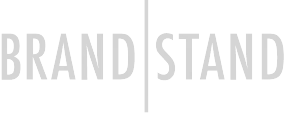By Mark Mayne, Technology Writer

In an unprecedented global pandemic and ongoing response, it is a complex period for all business operations. Hotels and the wider hospitality industry in particular are unexpectedly on the frontline of enforcing social distancing restrictions, as well as abiding by localized lockdowns and shifting national and international consensus on the best ways to tackle the pandemic.
Travel restrictions and social distancing have undoubtedly hit hospitality the hardest and, according to research by McKinsey, a return to pre-pandemic levels “could take until 2023 — or later.” [1] But industries and businesses are working hard to adapt to this ‘new normal’, challenging existing practices and finding new ways to operate safely.
- Hotel reopenings: The new normal
- The New WFH: Working From Hotels
- Clean hotel rooms in a coronavirus world
Although lockdowns earlier in 2020 had a huge impact on hotel occupancy, largely through business travel cancellations and holiday abandonment, the staged lifting of restrictions triggered enormous localized demand. Hotels, in particular, have worked hard to improve safety with more intense room cleaning regimes, temperature checks on arrival, and sometimes 72-hour gaps between room occupancy.
Consequently, consumers felt safe to travel and holiday destinations throughout Europe were packed for the last few weeks of the summer break, especially before the schools went back. In the US, meanwhile, weekly hotel occupancy (for the period 9-15 August) hit 50 percent for the first time since mid-March [2]. That’s still down 30% compared to the 2019 numbers, but it shows signs of a steady recovery.
B2B bookings still a concern
It’s not all good news. Many business-orientated hotel chains are still feeling the pinch from the temporary loss of many business conferences and trade shows, which have almost exclusively either cancelled entirely for 2020 or opted for a digital version. But while future events might well stay virtual, others might return to operate at reduced capacity with mandatory PPE to keep exhibitors and visitors safe.
Similarly, while backpackers, business travelers and Baby Boomer vacationers stay away, some hotels are taking advantage of ongoing healthcare service requirements. While rooms are usually free to healthcare workers themselves, many governments are paying the hotels for accommodation, creating a lifeline revenue stream.

In the US, for example, #hospitalityhelps [3] is bringing together hoteliers and property managers to address the shortage of healthcare beds. Another initiative, Hospitality for Hope [4] (funded by the American Hotel and Lodging Association), has signed up 17,000 hotels to provide accommodation for first responders and healthcare professionals. In Europe, Intercontinental Hotel Group (UK) and Accor (France) are offering similar services.
While safety advice might be to work from home where possible, there are substantial business verticals that cannot do so, and still require local accommodation. These include long-distance couriers, private and public construction workers, logistics operatives and manufacturing industries, as well as specialist service personnel and engineers.
International tourism is reopening doors
Elsewhere, hotels continue to re-open to welcome visitors, including all of the MGM Resorts International properties, most recently the Park MGM on September 30 in Las Vegas. Of course, global travel is still subject to local restrictions in many places, with one interesting strategy being the ‘VIP’ entry rules under which the Bahamas will reopen from early October 2020.
In this case, VIP stands for ‘vacation in place’, and essentially means that visitors are allowed full access to their hotel complex, including facilities such as pool, beach, spa, gym, restaurant for a 14 day stay - effectively creating a holiday bubble which visitors can enjoy.
Thailand has also announced a 14-day quarantine for visitors, but accompanied by a 90-day ‘STV’ tourist visa - applicants for the visa will have to book a hotel or private accommodation for the full 90 days in order to qualify. Other popular destinations such as Hawaii have taken a different approach, instituting a pre-travel testing program that allows travelers to earn exemption from quarantine with proof of a certified negative coronavirus test conducted within 72 hours of travel.
New ways of thinking
Of course, quarantine restrictions for certain countries have caused some travelers to cancel their plans entirely. It’s why global airlines have called for “pre-departure Covid-19 testing for all international passengers [5],” hoping this can act as a workable alternative to mandatory self-isolation protocols that are hampering a wider travel recovery.
Rather than submit to Covid-19 restrictions, many businesses and industries are thinking of new ways to keep operating. For hotels, this involves smart investments into better cleaning, new technology solutions and more flexible booking options, while shifting focus away from traditional leisure and business customers to embrace staycationers, telecommuters and weekend wellness-seekers.
The world has changed. We need to change with it.
Founded on the principles of innovation and safety, Brandstand makes power and charging products for the hospitality industry. Click here to find out more.
Other posts you might like:
- Hotel reopenings: The new normal
- The New WFH: Working From Hotels
- Clean hotel rooms in a coronavirus world
References:
[1] https://www.mckinsey.com/industries/travel-logistics-and-transport-infrastructure/our-insights/hospitality-and-covid-19-how-long-until-no-vacancy-for-us-hotels
[2] https://www.hospitalitynet.org/news/4100271.html
[3] https://www.hospitalityhelps.org
[4] https://www.ahla.com/ahlas-hospitality-hope-initiative
[5] https://www.cnbc.com/2020/09/22/airlines-call-for-covid-19-tests-before-all-international-flights.html



